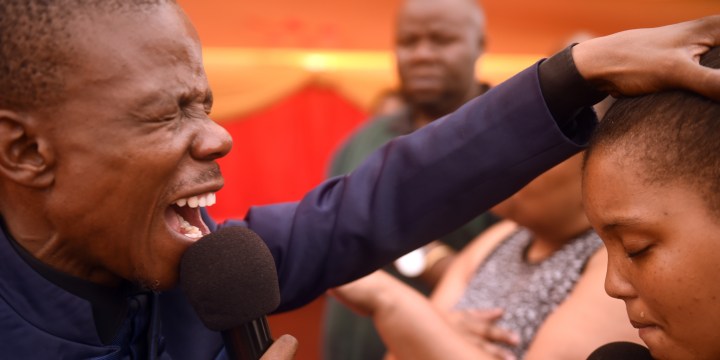RELIGION
Religious rights body calls for stricter religious regulation, again

The Commission for the Promotion and Protection of the Rights of Cultural, Religious and Linguistic Communities has called for stricter religious regulation amid the rise of dubious institutions. The call was made as the commission’s fourth consultative conference came to an end this week. A similar call was made by the commission in 2018, but is yet to be heeded, if this week’s ‘resurrection’ is anything to go by.
Why is religion the only sector that remains unregulated? This was the question posed by Thoko Mkhwanazi-Xaluva, chairperson of the Commission for the Promotion and Protection of the Rights of Cultural, Religious and Linguistic Communities, more commonly known as the CRL Commission.
“We have been strong in saying religious denominations must be regulated. This is the case in every other sector of economic activity in this country. We have the Medical Research Council, which deals with health professionals. We also have the Nursing Council,” Mkhwanazi-Xaluva said.
Concerns have been raised over the conduct of some church leaders in recent years after some have made their congregants drink petrol, and eat grass, snakes and mice. Some worshippers have been sprayed with insecticides in the name of religious belief.
This week a “dead man” was supposedly resurrected at the Alleluia International Ministries church, an incident the CRL commission said it would investigate.
At Tuesday’s meeting, Mkhwanazi-Xaluva called for a peer review mechanism to be put in place. This was not the first time the commission had called for a peer review mechanism. In 2017, when controversial Pastor Penuel Mnguni was alleged to have fed his congregants plants and cockroaches, the commission called for peer review mechanisms, adding that these would protect desperate and poor people.
The commissioner stressed the importance of peer review mechanisms, saying had they been in place, the case of Pastor Timothy Omotoso, who stands accused of rape and sexual abuse, would have been properly dealt with.
Addressing an almost full house of religious and cultural leaders, politicians, journalists, NGOs and cultural organisations, Mkhwanazi-Xaluva said the commission was mandated to monitor all church services broadcast within the South African media space to ensure that people’s rights to human dignity were not violated. She said there was nothing wrong with religion — the problem was with religious practitioners, the church leaders.
“They must be registered. People should know where these churches are,” she said.
Mkhwanazi-Xaluva spoke as the video of the pastor of Alleluia International Ministries allegedly “raising a man from the dead” went viral on social media platforms.
“We are against the promotion of fantasies,” said Mkhwanazi-Xaluva.
Asked what action the commission would take in the wake of the Alleluia International Ministries incident, Mkhwanazi-Xaluva promised action. She told Daily Maverick that the pastor would be summoned to appear before the commission and the “resurrected man” would be traced and summoned should there be no evidence of a doctor declaring him dead or evidence that he had been taken to a mortuary.
Professor Luka Mosoma, deputy chair of the CRL Commission, said, “South Africans believe too much in miracles, now the time has come not to be duped by these people.”
Mkhwanazi-Xaluva said the commission had been given a prospective mandate to push its policies robustly in the next five years, but one of its main frustrations was that its investigations and recommendations had no legal standing.
Mkhwanazi-Xaluva has had a tumultuous time at the helm of the commission. She explained how her and her family’s safety was at risk because of the work she was doing.
“It got so serious that even going out to buy groceries became hard,” she said.
But it was not only religious organisations that should be monitored, the commission said. Mkhwanazi-Xaluva said the conduct of traditional healers should be monitored, as were medical professionals.
“Traditional healers should have a basic understanding of the Constitution. They must have basic skills to run institutions of that magnitude,” said Mkhwanazi-Xaluva.
The commission was also mandated to ensure that the language and culture of the Khoisan were protected. Recognition of the Khoisan language and culture remains a hot issue. In 2019 six Khoisan activists camped outside the Union Buildings to draw attention to their demands. DM


















 Become an Insider
Become an Insider